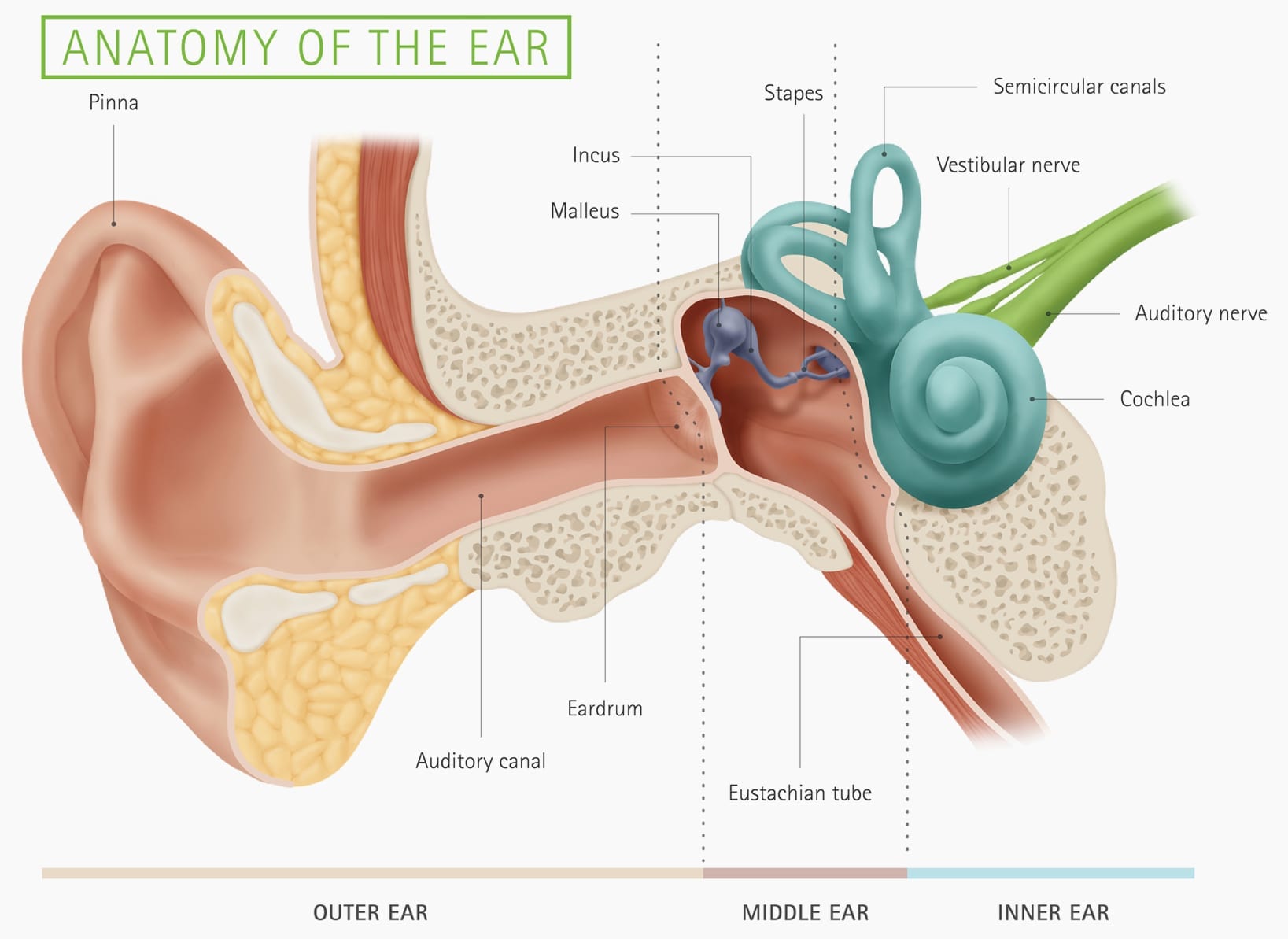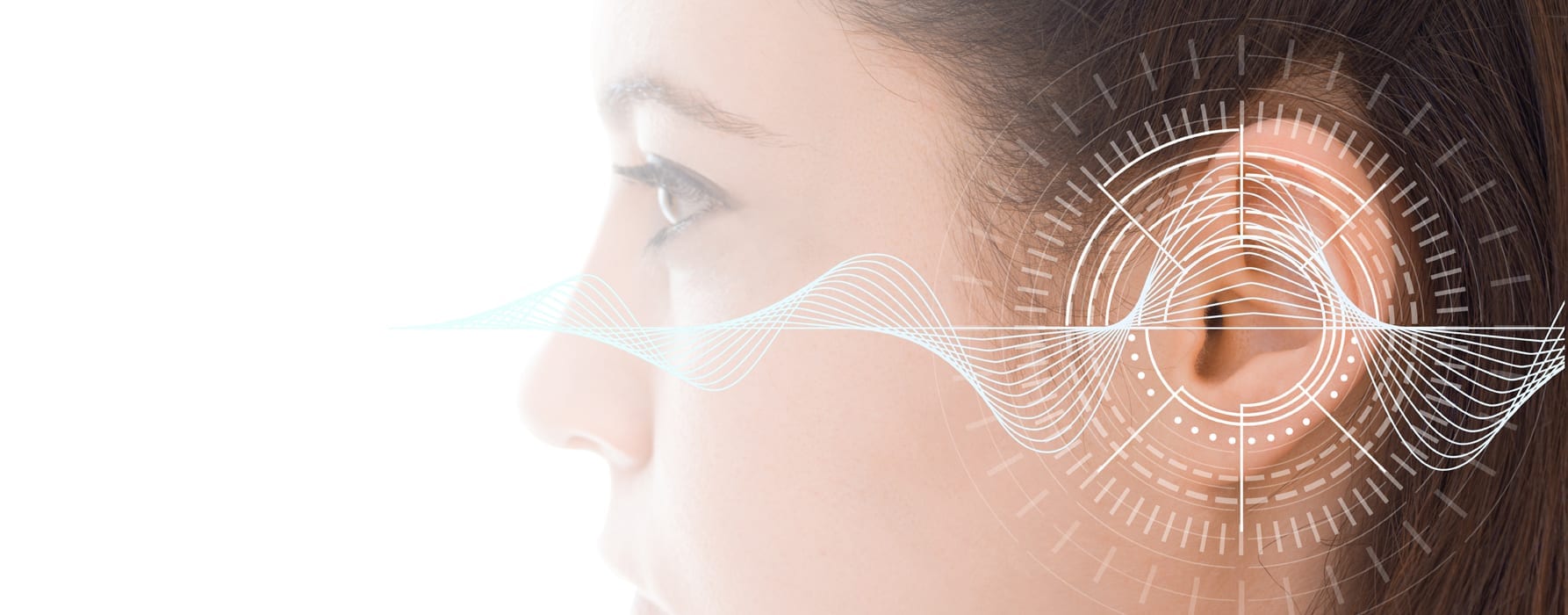Your Hearing
HELPING YOU HEAR THE WORLD AROUND YOU
Our hearing is something we take for granted. It is always “on”. It keeps us connected with the world around us and the people we interact with. This sense of safety and social well-being are important to our overall health. Dementia, depression, diabetes, and heart health have all been linked with hearing issues. It is important to find out more when you suspect a hearing loss. Changes in our perception of sound are often gradual. It may be our family and friends who notice these changes before we ourselves do. We may not notice the impact that change is having on ourselves or those around us.
About Your Hearing
Decades ago, research into aging intensified as it was recognized that the “Baby Boomers” were aging. The importance of optimal health for the sake of the individuals who are aging and the health care system as a whole was widely recognized. Research results that began decades ago are now bearing fruit and we are coming to better understand how interconnected the systems of the body are. Treating hearing loss has been identified as one of the 3 things we can act on to hedge our bets for our future health!
Most of us want to maintain our lifestyle and quality of life for as long as possible. There is always a balance between independence and interdependence. Treating hearing loss promotes independence and also makes it easier on those we live and interact with. It’s a win/win proposition!
There are many websites that can explain the way the ear works. Hear-it.org has some wonderful explanations. This video from Medel, a cochlear implant manufacturing company, gives a helpful introductory explanation:
Types of Hearing Loss
Doctors refer to 3 main categories of hearing loss:
1. Conductive Hearing Loss refers to losses where the sound cannot enter the ear, vibrate the eardrum or set-up movement of the ossicles (the 3 bones that cross the middle ear space) and deliver this sound energy to the inner ear.
This kind of loss is caused most commonly by wax, dirt or foreign objects in the ear canal, fluid behind the eardrum or changes in the structure of the ossicles. Seeking medical attention for these losses is important to prevent a temporary problem from becoming permanent.
Additional causes of conductive hearing loss include:
Allergies
Poor Eustachian tube function
Benign tumors
Malformation of outer or middle ear or ear canal
Punctured eardrum
2. Sensorineural Hearing Loss
This form of hearing loss is caused by damage to the inner ear and is often referred to as “nerve deafness”. This type of loss is usually permanent. It is the most common form of hearing loss and is often associated with aging or exposure to excessive noise. The two often go hand in hand. We do what we need to do to feed our families and have a bit of fun, but loud noise, whether from occupational or recreational noise exposure adds up over time. The hearing aids that are available now can treat sensorineural hearing loss much more successfully than they did even 5 years ago.
Additional causes of sensorineural hearing loss include:
Viral Infection
Tumors
Medications
Disease
Head injury or percussive forces
Drug use
Smoking
Genetic factors
Exposure to chemicals
3. Mixed Hearing Loss
Mixed hearing loss is a combination of both sensorineural and conductive components. Both the inner and middle or outer ear are involved. It is important to have a diagnostic hearing test and medical evaluation to determine the cause and severity of a mixed hearing loss. Treatment options may include surgery, medication, and/or hearing aids.
A fourth type of hearing loss is becoming more widely recognized. Audiologists often refer to it as Hidden Hearing loss. There may or may not be a measurable hearing loss present, but the processing of auditory signals is impaired. The result is difficulty understanding speech and coping with auditory overload. Special diagnostic testing is available, but the first step is to rule out the most common forms of hearing difficulty.

Signs of Hearing Loss

Here are 12 questions that will help you determine if you need to have your hearing evaluated by an audiologist:
1. Do you have trouble following the conversation when two or more people are talking at the same time?
2. Do people complain that you turn the TV volume up too high?
3. Do you have to strain to understand conversation?
4. Do you hear, but not necessarily understand what others are saying?
5. Do you have trouble following conversations in busy or noisy places?
6. Do you often ask people to repeat themselves or to speak louder?
7. Do many people you talk to seem to mumble (or not speak clearly)?
8. Do you feel exhausted after attending social events or actively try to avoid them?
9. Do you favour one ear over the other?
10. Do you have trouble understanding the speech of women and children?
11. Do you misunderstand what others are saying and respond inappropriately?
12. Do people get annoyed because you misunderstand what they say?
If you have answered YES to more than two of these questions, then you should have your hearing tested by an audiologist.
Still not sure? Try our online hearing screener for confirmation or a different approach to determine where you stand.
Sudden Hearing Loss

Sudden hearing loss is a serious concern. If you are experiencing a hearing loss that has developed suddenly or over a couple of days, you should seek medical attention immediately. Some causes of sudden hearing loss have a limited window of time for successful treatment.
You can also give us a call and explain your situation to the client care coordinator. Some medical doctors prefer to have an audiogram before they treat this condition. We will make assessing your hearing a priority.
For further information about sudden hearing loss, read this fact sheet from the National Institute on Deafness and Other Communication Disorders.
